Sports
Chanticleers Post Second Highest Spring GPA on Record
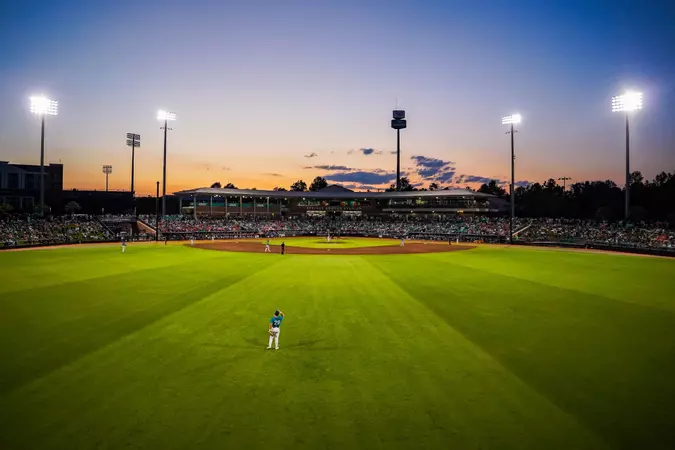
CONWAY, S.C. —- Coastal Carolina Athletics posted the second-highest spring departmental GPA at 3.40, the department announced Friday.
18 of 19 programs earned over a 3.0 during the spring semester.
This accomplishment marks 22-straight semesters of a 3.0 or better departmental GPA.
“I am proud of the commitment our student-athletes continue to show in the classroom,” said Coastal Carolina Vice President for Intercollegiate Athletics and University Recreation Chance Miller. “Posting a 3.40 departmental GPA—our second-highest ever—and seeing 18 of 19 programs eclipse the 3.0 mark this spring is a true testament to their dedication, discipline, and the culture here at Coastal Carolina. This also marks our 22nd consecutive semester with a departmental GPA above 3.0, a remarkable streak that reflects the consistent standard of excellence upheld by our programs. I want to extend a special thank you to our Student-Athlete Academic Services team for their tireless support and leadership. This is a shared achievement, and one that continues to define what it means to be a Chanticleer.”
A DEEPER DIVE
- 137 student-athletes made the Dean’s List
- 75 student-athletes made the President’s List
- 385 student-athletes made Chauncey’s Honor Roll (3.0+ semester GPA)
- 107 student-athletes are Elite Chants (4.0 semester GPA)
- This was the highest Spring GPA on record, outside of Spring 2020 (COVID semester).
- Baseball set a semester GPA record, highest of all time including COVID semester (3.557).
- Football earned it’s highest GPA on record, outside of Spring 2020 (COVID semester) (3.071).
- Lacrosse earned it’s highest GPA on record, outside of Spring 2020 (COVID semester) (3.629).
- Women’s Cross Country tied its highest GPA in program history (3.719).
- Softball earned it’s highest GPA on record, outside of Spring 2020 (COVID semester) (3.670).
- Volleyball earned it’s highest GPA on record, outside of Spring 2020 (COVID semester) (3.634).
- Beach Volleyball earned it’s second highest GPA on record (3.824).
- Women’s Golf had it’s highest Spring semester GPA ever (3.875).
- Best semesters on record (excluding 2020):
- Fall 2024 (3.425)
- Spring 2024 (3.40)
- Spring 2024 (3.375)
- Fall 2023 (3.305)
- Spring 2023 (3.264)
- Fall 2022 (3.196)
Sports
Texas A&M star Ifenna Cos‑Okpalla signs with League One Volleyball

Dec. 28, 2025, 12:20 p.m. CT
At the end of the season, after some of the adrenaline from the Texas A&M championship run had subsided, head coach Jamie Morrison revealed that a few players on his roster would have the opportunity to compete at the next level. While he didn’t name names, we had a pretty strong idea of which standout athletes he was referring to.
On Sunday morning, it was officially announced that senior middle blocker and 2025 NCAAVB Champion Ifenna Cos-Okpalla signed a professional contract to play with League One Volleyball (LOVB) Salt Lake. She joins senior opposite Logan Lednicky in the league, who recently signed with LOVB Houston. Cos-Okpalla was also drafted by MLV but ultimately chose to pursue her career with LOVB. We knew a move was coming soon after the news broke that she had signed with Valor Sports Agency just days before this announcement.
Cos-Okpalla is one of the foundational members of this Aggie championship team, having been part of the program for all four years and choosing to stay committed when Coach Morrison arrived to take over. She elevated her game each season under his leadership, helping her reach new heights and shatter multiple program records. She will leave Texas A&M as the all-time leader in total blocks (566), the single-season block leader (199), and the program’s hitting percentage leader (.422).
It’s fair to say she will be remembered as an Aggie legend, and she now turns her focus toward new goals with a promising professional volleyball career on the horizon.
Ifenna Cos-Okpalla Career stats:
Kills: 637 / 1.70 per set
Hitting %: .372
Blocks: 565 / 1.6 per set
Aces: 41 / .12 per set
Ifenna Cos-Okpalla Career Accolades:
- 2X All-SEC Team
- 4X SEC Player of the Week
- 10X SEC Defensive Player of the Week
- AVCA All-America First Team
- 2X AVCA All-Southwest Region Team
- NCAA Championship All-Tournament Team
- NCAA Champion
Contact/Follow us @AggiesWire on X and like our page on Facebook to follow ongoing coverage of Texas A&M news, notes, and opinions. Follow Jarrett Johnson on X: @whosnextsports1.
Sports
Deaf volleyball coach speaks volumes (video)

Sherry Bryant was born deaf, but that hasn’t stopped her from becoming a wife, mother and volleyball coach for Copper Sky Multigenerational Center’s youth volleyball league.
Bryant can’t hear and she doesn’t speak, but she uses hand gestures and written notes to communicate with players. During practice, she is often in the action pointing players to proper positions and cheering on successful plays.
Her desire to coach stems from more than her love of the game. She is able to spend time with her daughter on the court and show that deaf people are not limited.
“My daughter plays, and I feel it benefits her and the girls,” Bryant said. “If there are no volunteers, there might be no one to coach. Another reason is to show deaf people can do it.”
From time to time, Bryant’s players are unable to understand their coach’s instructions.
“This is my first (coaching) experience,” Bryant said. “My assistant coach (Nikki Lucchesi) helps me a lot. She speaks to the players.”
For Copper Sky Sports Coordinator David Aviles, picking Bryant to coach was simple.
“When you run a sports program there are times you run low on coaches,” Aviles said. “I reached out to the parents for the girls, and [Bryant] volunteered. She’s done a great job and really enjoys it.”
Bryant’s team won its first game. The players were attentive to her instructions.
“It’s inspirational for the kids to see that she’s out there coaching,” Aviles said. “She takes a hands-on approach and plays with them. It seems to be working well.”
This story appeared in the February issue of InMaricopa News.
Sports
Cos-Okpalla Inks Professional Contract with LOVB Salt Lake – Texas A&M Athletics
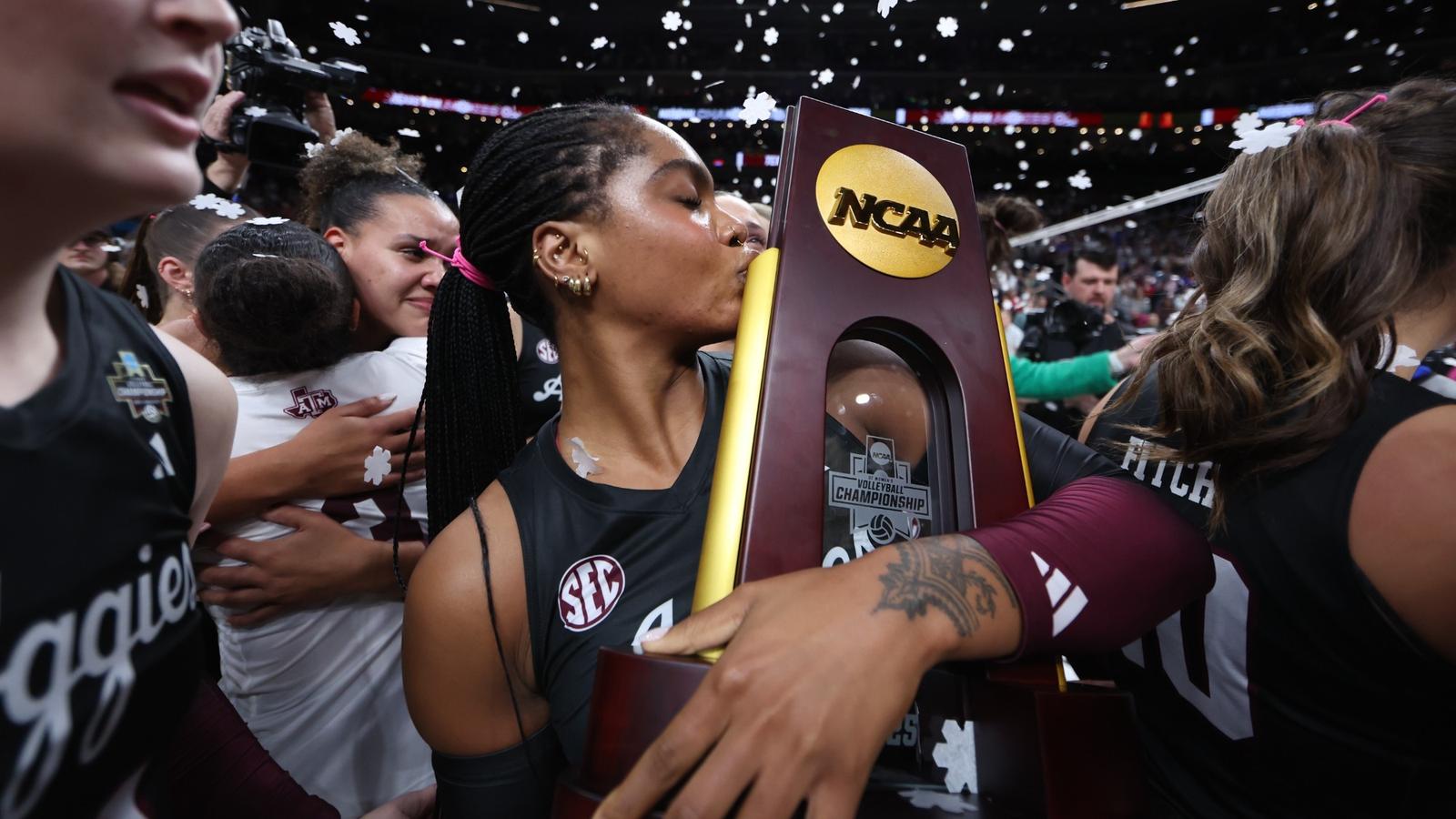
Fresh off leading the Aggies to their first NCAA title, Cos-Okpalla was announced as one of seven collegiate athletes selected for LOVB and will take her talents to Utah. The middle blocker was highly sought after following her senior season, as she garnered First Team All-America honors and led the country in blocks with 199 on the year.
“I couldn’t be happier for Ifenna [Cos-Okpalla] as she starts her pro career,” head coach Jamie Morrison said. “When I took this job one of my goals for the program was to become the best place to develop our athletes into professional and international players. We want to build a clear pathway from college to the professional game, and I know Ifenna is going to thrive at the next level.”
The Flower Mound, Texas, native made history in the final match of her career, setting the program record for career blocks. She entered the contest with 561, one shy of the Jazzmin Babers former record (562), and with her second of the match passed the milestone and added two more to finish her career with 565. Her senior season on its own also made history, as she tallied 199 stuffs which was a single-season record.
Cos-Okpalla’s versatility is what made her stand out, as offensively she recorded 629 kills over her four years while recording back-to-back years with over 200 in 2024 (228) and 2025 (236). Not only did her production rise every year, so did her efficiency which culminated in the program record for hitting percentage in a season this year at .422 percent.
The All-American separates herself from other middle blockers nationwide from the service line, racking up a team-high 42 aces this season which is the most by an Aggie since 2019. Her variety of scoring helped her accumulate 396.5 points on the year.
Leaving a legacy, Cos-Okpalla departs Aggieland a two-time All-American, two-time All-SEC First Team honoree, three-time All-Region selection, an NCAA and SEC All-Tournament Team member and a program record 14-time SEC weekly award winner.
FOLLOW THE AGGIES
Visit 12thMan.com for more information on Texas A&M volleyball. Fans can keep up to date with the A&M volleyball team on Facebook, Instagram and on Twitter/X by following @AggieVolleyball.
Sports
South Carolina Gamecocks Defensive Back Plans to Enter the Transfer Portal
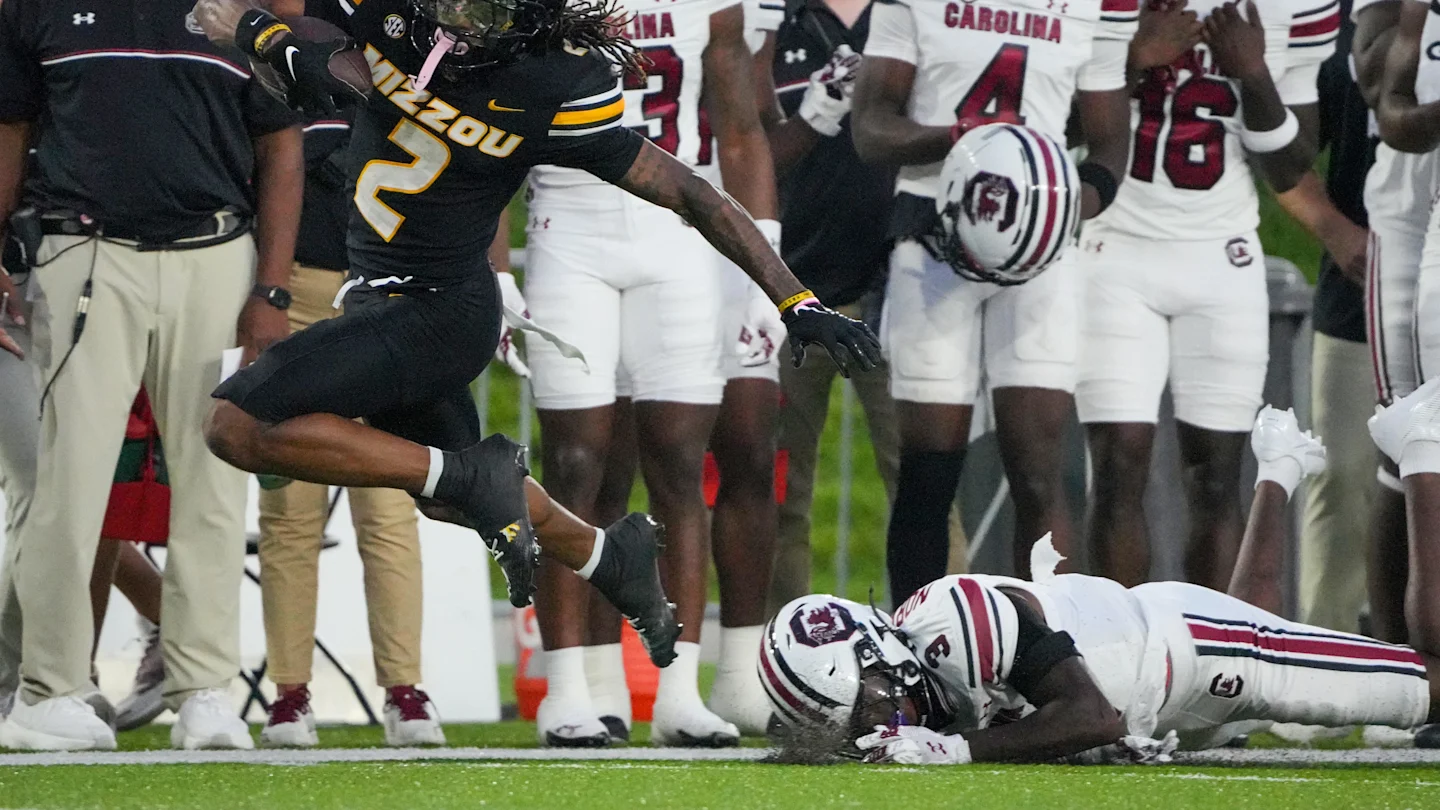
After transferring to South Carolina prior to the 2025 season, defensive back Myles Norwood will enter the transfer portal in hopes of finishing his last year of eligibility elsewhere next fall. Norwood began his career at Iowa State, transferred to Ball State, and then to South Carolina. He will be looking for his fourth home this offseason.
Norwood was a collegiate track star turned defensive back in his college career. His journey began at Iowa Western Community College where he was a track and field participant for the Reivers. Following his freshman year in track he moved on to Iowa State to play for then head coach Matt Campbell (now Penn State). He spent two seasons with the cyclones appearing in just one game against West Virginia in 2022. In 2024, he transferred to New Mexico State in February, but never played for the Aggies before transferring to Ball State just three months later.
At Ball State, Norwood appeared in all 12 games for the Cardinals making seven starts. He was credited with with 38 tackles including 2.0 tackles for loss, one fumble recovery and a team-leading 10 pass breakups. After his breakout season with the Cardinals, Norwood commited to the Gamecocks for the 2025 season. He appeared in 10 games, with two starts, in his time in Columbia as he racked up 19 total tackles this past season.
Updated Transfer Portal Tracker

In addition to Norwood, 11 other Gamecocks have entered the portal so far with the offensive line room taking the biggest hit. That list includes OL Tree Babalade, OL Cason Henry, WR Brian Rowe Jr., QB Air Noland, OL Mac Walters, OL Nick Sharpe, OL Trovon Baugh, DL Zavian Hardy, LB Jaron Willis, LB Taeshawn Alston, and K Peyton Argent.
A few others have already declared their move to the 2026 NFL Draft. Wide receiver Jared Brown was the latest to make his intentions known. He joins defensive tackle Monkell Goodwine, defensive tackle Nick Barrett, and defensive end Bryan Thomas Jr. as those entering their names in the 2026 NFL Draft, with tight end Jordan Dingle expected to be the next name as his eligibility is out.
Join the community:
- Follow Alex Joyce on Twitter: @AlexJoyceSI
- Follow Joey Walraven on Twitter: @thejoeywalraven
You can follow us for future coverage by clicking “Follow” on the top right-hand corner of the page. Also, be sure to follow us on X at @GamecocksDigest and on Facebook!
You Might Also Like:
Sports
Tennessee Tech Closes 2025 with Tennessee State at Eblen Center
By Jeff Bowe, TTU Athletics Media Relations
COOKEVILLE, Tenn. – Tennessee Tech (6-7, 1-1) men’s basketball plays its final game of 2025 against Tennessee State (7-5, 1-1) at Hooper Eblen Center at 7:30 p.m. CT on Tuesday, Dec. 30.
The Golden Eagles return to the hardwood after an extended break for the holidays to face the Tigers. TSU has won five of the last seven games but most recently fell, 91-82, to SEMO, opening OVC competition 1-1. Tech has won three of the last four games and opened conference play with an 85-74 victory over SEMO, then fell to UT Martin (L, 62-86).
TTU enters today’s game 4-2 at home this season with wins over SEMO, Bethel (101-69), Berea (86-64), and Va. Lynchburg (118-58), and losses to West Ga. (L, 59-61) and UT Martin (L, 62-86).
GAME INFORMATION
Matchup: Tennessee Tech (6-7, 1-1 OVC) vs. Tennessee State (7-5, 1-1 OVC)
Date & Time: Tuesday, Dec. 30 at 7:30 p.m. CT
Venue: Hooper Eblen Center
Watch: ESPN+ | Dylan Vazzano (PxP) and Frank Harrell (Analyst)
Radio: 106.1 The Eagle | Noah McKay (PxP) and Jacob Vinson (Analyst)
Promotion: Purple Haze – WEAR PURPLE!
INSIDE THE SERIES
Overall: TSU leads, 41-39
In Cookeville: Tech leads, 23-17
In Nashville: TSU leads, 18-22
Neutral sites: TSU leads 2-0
Current Streak: TTU won 1
Last Meeting: TTU won 77-74 in Cookeville (Feb. 22, 2025)
TECH NOTES
Dani Pounds leads Tech in scoring, averaging 12.5 points per game (19th in OVC), and Mekhi Cameron is second on the team with 12.2 points per game (20th in OVC). Pounds is fourth in the OVC in free-throw percentage, shooting 84.1 from the line. Pounds leads the Golden Eagles in rebounds with 4.8 per game (20th in OVC).
JaJuan Nicholls is second on the team in rebounds per game (4.7), which is 23rd in the conference.
Tennessee Tech’s 118 points against Va. Lynchburg (W, 118-58, 11/10/25) mark the third-most points scored in a single game by an OVC team this season.
Ty Owens is second in the OVC with 4.2 assists per game (54 total). Nicholls is tied for fifth in the conference in blocks per game (1.2) and fourth in the OVC in total blocks (16).
The Golden Eagles are second in the conference in points per game (79.7), as well as fourth in the conference in scoring margin (3.5). TTU holds the second-best shooting percentage in the OVC (47.0, 365-777), making three fewer shots than the conference leaders (Lindenwood, 47.4).
OPPONENT NOTES
Tennessee State (7-5, 1-1) leads the all-time series 41-39 as the teams split the last two matchups during the 2024-25 season.
The Tigers are coming off a hard-fought 91–82 loss to Southeast Missouri at the Gentry Center, while the Golden Eagles also enter the contest following a defeat.
The game marks the return to action for both programs after a 10-day break. Tennessee State will open the 2026 calendar year on the road at Little Rock on Saturday, Jan. 3.
Aaron Nkrumah leads the Tigers in scoring with 17.0 points per game, averaging 4.8 rebounds per contest and 2.6 assists per game. Travis Harper II is second on the team with 15.8 points per game, and Dante Harris is third on the squad per contest with 12.6 points on average.
PURCHASE TICKETS
Tickets for Tennessee Tech Men’s Basketball are on sale now – call (931) 372-3940, visit the Hooper Eblen Center ticket office, or order online at TTUsports.com.
FOLLOW THE GOLDEN EAGLES
Fans can be sure to follow the Golden Eagles men’s basketball team on X (@TTU_Basketball), Instagram (TTUMBB), and Facebook (TTU MBB) for all of the news, notes, and updates.
Sports
Top 25 Moments of 2025

Helms, a transfer from Texas A&M, bested his previous Heptathlon score of 5394 which he earned at the Stan Scott Invite and Multis taking place on Jan. 30-Feb. 1, hosted by Texas Tech. He has had immense success in the Key City, posting three different splits at the Red Raider open in the 60m hurdles (8.30), 4x400m (3:16.21, 49.27 split) and pole vault (16-2/4.93m).
At the Mountain West Outdoor Track and Field Championships, Robertson has etched herself in the record books. At the NCAA Outdoor National Championships, she recorded the best finish by a Bronco since the 2022 campaign by finishing 53rd in a field of 254 total runners.
Robertson was the first Bronco woman to earn All-America honors in the 1,500 since 2019 (Emma Bates). Hanna Ackermann also posted a top finish while in Eugene. Ackermann recorded a time of 9:54.21 in the steeplechase. The time was the third-fastest time in Boise State history.
Helms registered a score of 7,696 in the decathlon. His mark ranks third in Boise State school history and improved his previous mark in the decathlon at the 2025 Mountain West Outdoor Track and Field Championships which were hosted by Fresno State in Clovis, California.
-

 Motorsports3 weeks ago
Motorsports3 weeks agoSoundGear Named Entitlement Sponsor of Spears CARS Tour Southwest Opener
-

 Motorsports3 weeks ago
Motorsports3 weeks agoDonny Schatz finds new home for 2026, inks full-time deal with CJB Motorsports – InForum
-
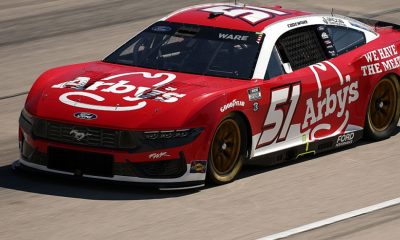
 Motorsports3 weeks ago
Motorsports3 weeks agoRick Ware Racing switching to Chevrolet for 2026
-

 NIL3 weeks ago
NIL3 weeks agoDeSantis Talks College Football, Calls for Reforms to NIL and Transfer Portal · The Floridian
-

 Sports2 weeks ago
Sports2 weeks ago#11 Volleyball Practices, Then Meets Media Prior to #2 Kentucky Match
-

 Motorsports2 weeks ago
Motorsports2 weeks agoSunoco to sponsor No. 8 Ganassi Honda IndyCar in multi-year deal
-
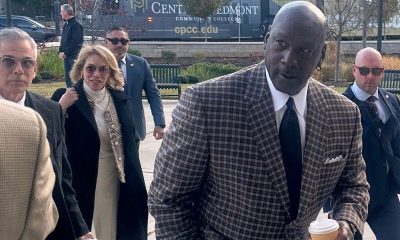
 Motorsports3 weeks ago
Motorsports3 weeks agoNASCAR owes $364.7M to teams in antitrust case
-
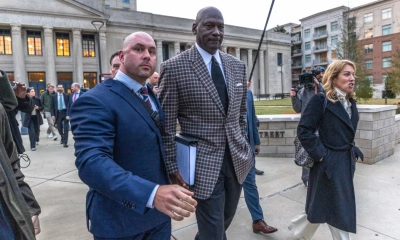
 Motorsports2 weeks ago
Motorsports2 weeks agoNascar legal saga ends as 23XI, Front Row secure settlement
-
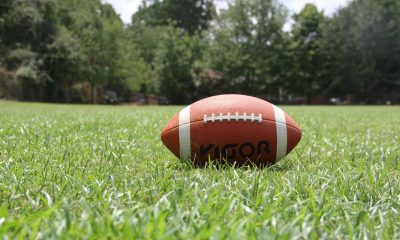
 Rec Sports3 weeks ago
Rec Sports3 weeks agoWhy the Texas Sport for Healing Fund Should Return – The Daily Texan
-
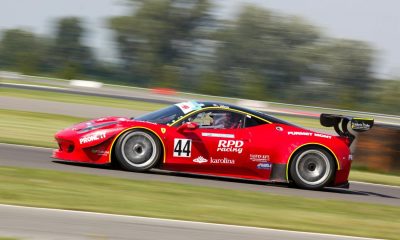
 Motorsports3 weeks ago
Motorsports3 weeks agoAccelerating Inclusion: Breaking Barriers in Motorsport

































